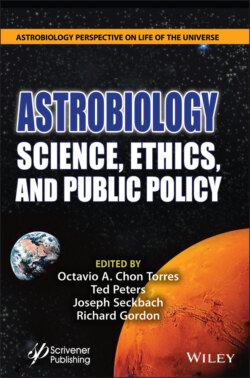Читать книгу Astrobiology - Группа авторов - Страница 43
2.4.1 What is Our Responsibility Toward Intellectually Inferior ETI?
ОглавлениеIf intelligence can be measured in terms of higher and lower, what if the extraterrestrials we engage exhibit lower intelligence than Earth’s Homo sapiens? Might the ethical framework for discerning our responsibility toward intellectually inferior ETI be analogous to our responsibility toward Earth’s animals? [2.66].
If we answer affirmatively, then we would find ourselves in a classic dialectic. On the one hand, instrumentalist values are obtained. The human race exploits all other life forms—both plants and animals—for human welfare. Animals provide food, work, clothing, and even company. Animals can be sacrificed in medical research to develop therapies that will benefit only human persons. On the other hand, intrinsic values are obtained. We human beings have a sense of responsibility toward the welfare of animals. We respect them as intelligent beings; and we are concerned about preventing suffering to animals. In some instances, we exert considerable energy and effort to preserve their species from extinction and to insure the health of individual animals. In the case of pets, we love them to a degree that rivals loving our own family. We treat our pets as if they possess intrinsic value. In sum, we have inherited this double relationship to our inferiors already here on Earth.
What about ETI whose intelligence level is similar to that of the animals we have come to know? In terms of our responsibility, I believe we should take the initiative to extend concern for the welfare of such ETI on the model of our current concern for the subjective quality of animal experience. We should do what we are able to protect ETI from suffering and enhance their experience of wellbeing. In short, an astroethics of responsibility suggests that we respect ETI and show them care.
